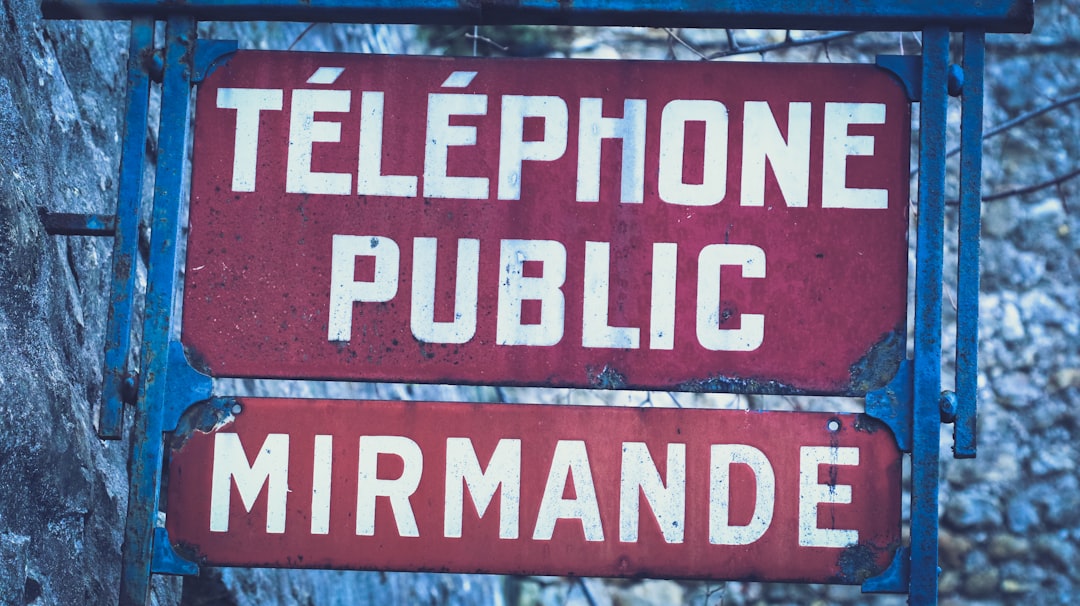Wisconsin residents enjoy robust protection from robocalls and spam texts through laws like the Do Not Call Law and federal regulations. Consulting a specialized robocall lawyer is advisable for unwanted calls targeting individuals or businesses, offering guidance on rights, filing complaints, and legal action against violators. Registering for the National Do Not Call Registry and state lists, blocking numbers, and seeking legal assistance are crucial steps in combating deceptive marketing tactics. Hiring a robocall lawyer Wisconsin can help recover control, pursue justice, and navigate legal options under spam call laws.
Tired of annoying robocalls and spam text messages? Understanding your rights under Wisconsin’s strict robocall laws is crucial. This guide equips you with the knowledge to identify and stop unwelcome contact. From recognizing spam calls and registering for Do Not Call lists to exploring legal recourse with a robocall lawyer Wisconsin or spam call law firm Wisconsin, you’ll discover effective strategies to reclaim your peace of mind. Explore these resources, empower yourself, and say goodbye to unwanted intrusions.
Understanding Robocall Laws in Wisconsin

In Wisconsin, robocall laws are in place to protect residents from unsolicited and intrusive automated calls, or robocalls. The Wisconsin Do Not Call Law, enforced by the Wisconsin Department of Agriculture, Trade and Consumer Protection (DATCP), prohibits businesses from making automated telemarketing calls to consumers who have registered on the state’s Do Not Call list. This law also gives consumers the right to request exclusion from specific types of calls, including political and non-profit organizations’ robocalls.
If you’ve received unwanted robocalls or texts, consulting with a robocall lawyer in Wisconsin can be beneficial. A qualified attorney specializing in spam call laws can help you understand your rights, file complaints with relevant authorities, and even seek legal action against persistent or illegal robocallers. Remember, protecting yourself from these scams starts with knowing your rights under Wisconsin’s consumer protection laws and seeking expert advice when needed.
Identifying Spam Calls and Text Messages

In today’s digital era, robocalls and spam text messages have become a common nuisance, with many Wisconsin residents falling victim to fraudulent schemes. Identifying these unwanted communication attempts is the first step in protecting yourself. Robocall lawyers and attorneys in Wisconsin emphasize that spam calls are often characterized by automated or pre-recorded messages, typically promoting products, services, or even legal offers. These calls can be relentless and often target specific demographics or areas, including Wisconsin residents.
To combat this, the Do Not Call law firms in Wisconsin advise being vigilant with your personal information. Be cautious about sharing details over the phone unless you initiate the call and verify the recipient’s identity. Many spam calls claim to be from legal entities, offering free consultations or warning of potential lawsuits. A robocall lawyer in Wisconsin warns that genuine law firms will not engage in such aggressive marketing tactics. Therefore, if you receive suspicious calls or texts, document the information, block the number, and consider seeking advice from experienced robocall lawyers in your state to understand your rights and available legal options.
Registering for Do Not Call Lists

Registering for the National Do Not Call Registry is a powerful first step in combating robocall scams. This federal list prevents businesses from calling numbers on it, but it’s just the beginning. Many states, including Wisconsin, have their own Do Not Call lists that offer additional protection. By registering your number, you’re signaling to callers that you don’t want unsolicited calls or texts.
In Wisconsin, you can register online through the state’s official website or by contacting your local consumer protection agency. Remember, while this helps filter out many unwanted calls, some robocalls may still slip through. If you feel you’ve been targeted by illegal spam calls or texts, consider consulting a robocall lawyer in Wisconsin for guidance on your rights and potential legal recourse under state and federal laws.
Legal Rights Against Unwanted Contacts

In Wisconsin, residents have legal rights to protect themselves from unwanted contact, including robocalls and spam calls. The state has implemented strict laws to curb excessive telemarketing and preserve consumers’ privacy. According to Wisconsin’s Do Not Call Law, businesses are prohibited from making automated or prerecorded telephone calls to individuals who have registered their phone numbers on the state’s Do Not Call list. This means that if you’ve opted out of receiving such calls, any robocaller violating this law can face penalties.
If you’ve been a victim of persistent robocalls or feel your rights have been violated, consulting with a robocall lawyer in Wisconsin is advisable. Legal experts specializing in spam call laws and do-not-call regulations can help you understand your options and take appropriate action. They can represent you in legal matters and ensure that your rights are protected against aggressive marketing tactics.
Finding a Robocall Lawyer in Wisconsin

If you’ve been a victim of robocalls or spam calls in Wisconsin, knowing your rights and having legal representation can be crucial. Many individuals across the state have fallen prey to deceptive marketing tactics, and this has led to an increase in demand for specialized legal services. Finding a robocall lawyer in Wisconsin is an essential step towards reclaiming control and seeking justice.
There are several law firms catering specifically to robocall-related cases and spam call laws in Wisconsin. These experts are well-versed in the state’s Do Not Call laws and can assist you in navigating legal options if your rights have been violated. Whether it’s unwanted texts or automated phone calls, a robocall attorney Wisconsin can provide guidance, represent your interests, and help you understand your options for compensation or resolution.






